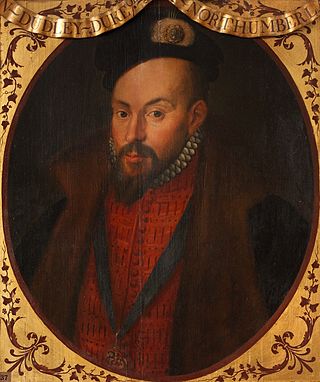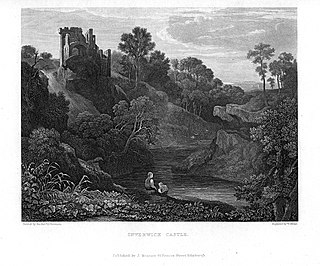
The King's Body Guard of the Yeomen of the Guard is a bodyguard of the British monarch. The oldest British military corps still in existence, it was created by King Henry VII in 1485 after the Battle of Bosworth Field.

Sir Philip Carteret, 2nd Baronet, also known as Philippe de Carteret IV, was the 5th Seigneur of Sark from 1663 to 1693.

The Usher of the Black Rod is an official in the parliaments of several countries of the Commonwealth of Nations. The position originates in the House of Lords of the Parliament of the United Kingdom. Equivalent positions also exist in Australia, Canada, and New Zealand.

The State Opening of Parliament is a ceremonial event which formally marks the beginning of a session of the Parliament of the United Kingdom. It includes a speech from the throne known as the King's Speech. The event takes place in the House of Lords chamber on the first day of a new session, which is usually in May or June, and traditionally in November, but can occur at any time of year depending on the timing of General Elections and parliamentary session start dates. It takes place in front of both Houses of Parliament. The monarch, wearing the Imperial State Crown, reads a speech that has been prepared by his or her government outlining its plans for that parliamentary year.
A serjeant-at-arms, or sergeant-at-arms, is an officer appointed by a deliberative body, usually a legislature, to keep order during its meetings. The word "serjeant" is derived from the Latin serviens, which means "servant". Historically, serjeants-at-arms were armed men retained by English lords and monarchs, and the ceremonial maces which they are associated with were originally a type of weapon.

The Lords Commissioners are privy counsellors appointed by the monarch of the United Kingdom to exercise, on his or her behalf, certain functions relating to Parliament which would otherwise require the monarch's attendance at the Palace of Westminster. These include the opening and prorogation of Parliament, the confirmation of a newly elected speaker of the House of Commons and the granting of royal assent. The lords commissioners are collectively known as the Royal Commission. The Royal Commission includes at least three—and usually five—lords commissioners. In current practice, the lords commissioners usually include the lord chancellor, the archbishop of Canterbury, the leaders of the three major parties in the House of Lords, the convenor of the House of Lords Crossbenchers and the lord speaker. Occasionally there are substitutions if the normal commissioners are unavailable.
Introduction is a ceremony in the House of Lords whereby new members are "introduced" to the existing membership. Introductions in the Lords are more elaborate than those in the House of Commons.

The Groom of the Stool was the most intimate of an English monarch's courtiers, responsible for assisting the king in excretion and hygiene.

Sir Charles Edward Webb Jones, was a senior officer in the British Army. He served as Quartermaster-General and as Britain's military representative to the North Atlantic Treaty Organisation (NATO). He retired from the Army in 1995 to become Gentleman Usher of the Black Rod in the British Parliament's House of Lords, serving in that office until 2001.
Court appointments are the traditional positions within a royal, ducal, or noble household. In the early Middle Ages, when such households were established, most court officials had either domestic or military duties; the monarch's closest advisers were those who served in the household. However, as time went by, most of these positions became hereditary, and their role in the running of the household was gradually eroded. In England, for instance, the Lord Great Chamberlain and the Earl Marshal were originally responsible for the running of the royal household and the royal stables respectively; however, from the late medieval period onwards, their roles became largely honorary, their places in the household being taken by the Lord Chamberlain and the Master of the Horse.

A privy chamber was the private apartment of a royal residence in England.
Groom of the Chamber was a position in the Household of the monarch in early modern England. Other Ancien Régime royal establishments in Europe had comparable officers, often with similar titles. In France, the Duchy of Burgundy, and in England while French was still the language of the court, the title was varlet or valet de chambre. In German, Danish and Russian the term was "Kammerjunker" and in Swedish the similar "Kammarjunkare".

Valet de chambre, or varlet de chambre, was a court appointment introduced in the late Middle Ages, common from the 14th century onwards. Royal households had many persons appointed at any time. While some valets simply waited on the patron, or looked after his clothes and other personal needs, itself potentially a powerful and lucrative position, others had more specialized functions. At the most prestigious level it could be akin to a monarch or ruler's personal secretary, as was the case of Anne de Montmorency at the court of Francis I of France. For noblemen pursuing a career as courtiers, like Étienne de Vesc, it was a common early step on the ladder to higher offices.
Sir John Norreys or Norris was a gentleman usher daily waiter at the English court during the reign of the House of Tudor. He is thought to be the author of a treatise describing the roles of servants of the chamber.

The Royal Households of the United Kingdom are the collective departments that support members of the British royal family. Many members of the royal family who undertake public duties have separate households. They vary considerably in size, from the large Royal Household that supports the sovereign to the household of the Prince and Princess of Wales, with fewer members.

The State Opening of Parliament includes a State Procession, a formal display of the Sovereign, dignified by a sizeable entourage made up of Great Officers of State, members of the royal family and of the Royal Household. The State Procession is now confined to the interior of the Palace of Westminster, but in earlier centuries it followed an outdoor route to and from Westminster Abbey.

An Esquire of the Body was a personal attendant and courtier to the Kings of England in the late-medieval and early-modern periods. The Knight of the Body was a related position, apparently sometimes merely an "Esquire" who had been knighted, as many were. The distinction between the two roles is not entirely clear, and probably shifted over time. The positions also existed in some lesser courts, such as that of the Prince of Wales.
Major General Charles Gerard Courtenay Vyvyan, is a retired British Army officer. He served as Head of the British Defence Staff and Defence Attaché in Washington, D.C. (1997–2000), and Gentleman Usher of the Scarlet Rod (2006–2018).

Rear Admiral Iain Robert Henderson, is a retired senior Royal Navy officer.

James Maxwell, 1st Earl of Dirletoun was a Scottish courtier and landowner, and Black Rod. He was involved in selling royal jewels.














